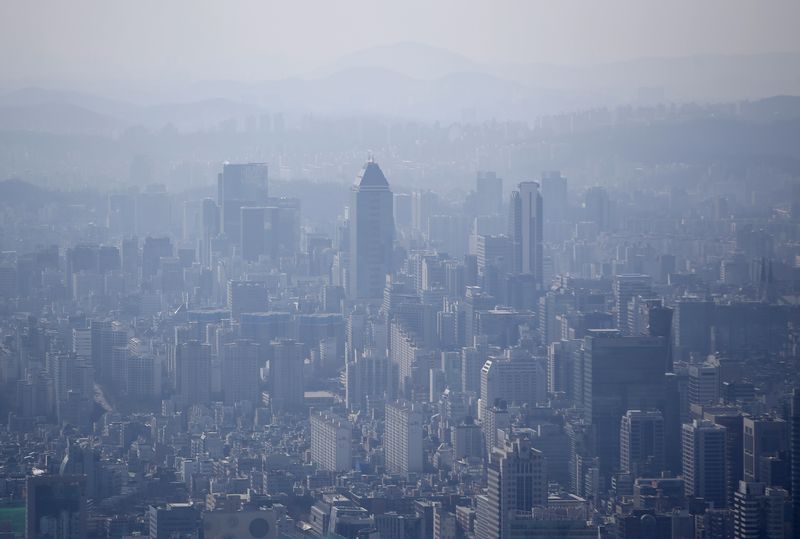By Jihoon Lee and Choonsik Yoo
SEOUL (Reuters) -South Korea's government promised strong support for exporters after the country posted on Thursday its first economic contraction in 2/1-2 years, due mainly to a crash in exports, and faced a possibility it was in recession.
Playing down the economic slowdown as part of a global trend and saying a return to growth in the current quarter "is possible", Finance Minister Choo Kyung-ho pledged prompt support measures for exporters, such as tax breaks and administrative help.
Central bank estimates showed gross domestic product (GDP) shrank 0.4% in the October-December period from the previous quarter. Economists in a Reuters poll had expected a 0.3% fall.
"The government will focus policy resources on reactivating exports and investment, such as pushing ahead with deregulation efforts and offering tax and financial support," Choo said at a meeting of officials that was open to reporters.
Leading the first GDP decline since the second quarter of 2020 were losses of 5.8% in exports and 0.4% in private consumption, whereas government spending posted a sharp 3.2% increase, according to the central bank's estimates, which were seasonally adjusted.
There are signs of continued weakness in the first quarter. A slump in the property market has deepened and exports per working day were 8.8% lower in January 1-20 than a year earlier.
Economists usually define a recession as two or more successive quarters of contraction. If first-quarter GDP is eventually reported as falling, a South Korean recession will be judged to have begun almost four months ago. The economy was last in recession in the first half of 2020.
Bank of Korea Governor Rhee Chang-yong said on Jan. 13 it was too early to judge whether the country was falling into recession. "We are on the borderline and should take a look at more data to provide details in February," he said then.
Markets showed a muted reaction to Thursday's GDP data, since it was close to expectations.
Still, the result cemented the market's view that the central bank's Jan. 13 interest rate rise had marked the end of a 17-month tightening cycle and that the Bank of Korea would even be pressured to start cutting its policy rate this year.
"Effects from China's reopening (from COVID-related curbs) will help but exports won't turn around immediately due to weakness in other major economies," said Park Sang-woo, economist at DB Financial Investment.

Park expected GDP to contract further in the current quarter or, at best, to hold steady.
The central bank estimated that in 2022 the full-year value of the economy, Asia's fourth-largest, had been 2.6% larger than in 2021, when it showed growth of 4.1%. The average growth in full-year GDP for 2017 to 2021 was 2.3% a year.